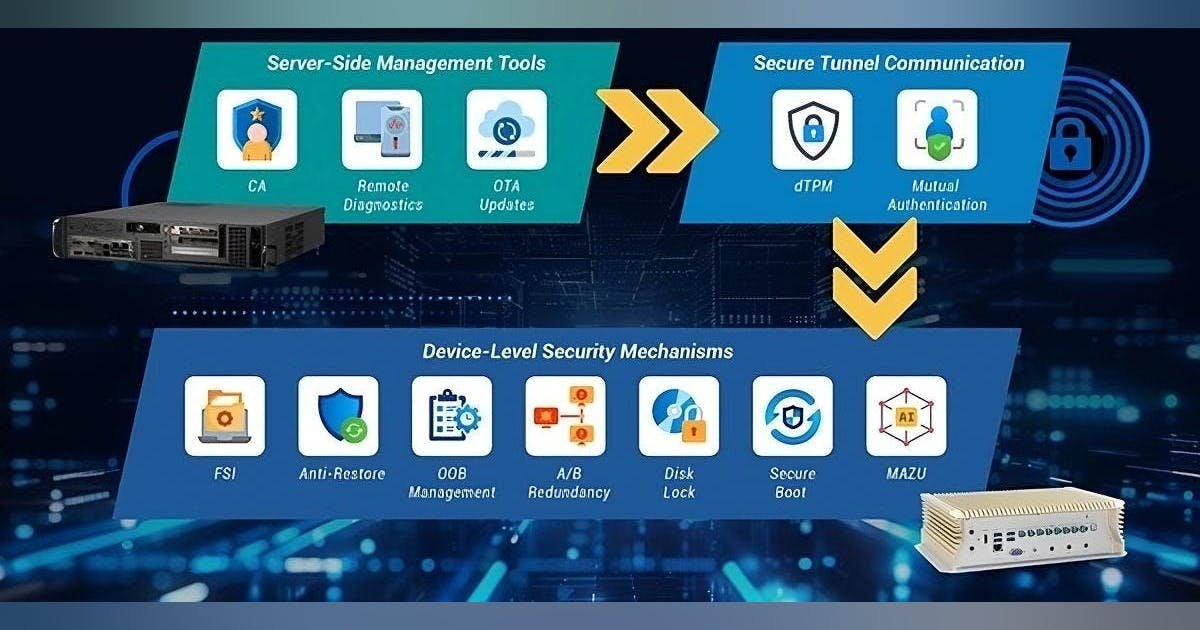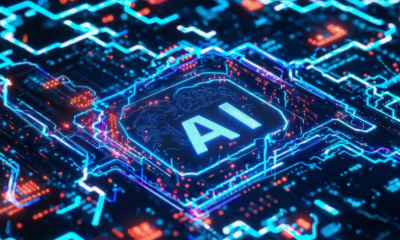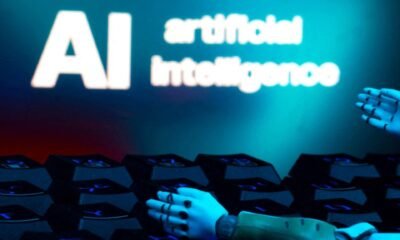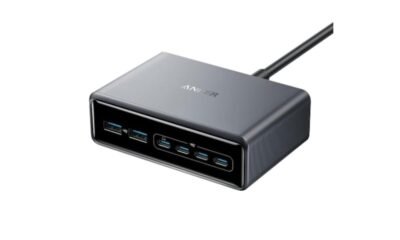AI Insights
ACR To Launch Artificial Intelligence Economics Committee

Newswise — Reston, VA (July 15) — The American College of Radiology® (ACR®) is launching a new Artificial Intelligence (AI) Economics Committee to help consolidate available resources and develop financial strategies to address development and deployment of radiologic AI tools. The committee will specifically address Medicare, Medicaid and private insurance coverage and reimbursement for AI tools used in radiologic care.
“The ACR has long been at the forefront of navigating the intricate and rapidly evolving imaging artificial intelligence landscape,” said Gregory N. Nicola, MD, FACR, Chair of the ACR Commission on Economics. “Many ACR commissions and volunteers have dedicated themselves to scenario planning, federal rulemaking response, and collaborating with government and multi-specialty thought leaders on how to bring this impactful technology to the bedside of our patients. The Artificial Intelligence Economics Committee will enable us to consolidate resources across the college by bringing together a diverse range of expertise to continue this vital work.”
The new committee – chaired by Frank J. Rybicki, MD, PhD, FACR – will have approximately 10 members expert in relevant medical-economic areas – including:
- Medicare and Medicaid Payment schedules (MPFS and HOPPS)
- AMA/Specialty Society Relative Value Scale Update Committee (RUC)
- CPT code development and implementation
- Informatics and the ACR Data Science Institute
- Computer Science and applications of Convolutional Neural Networks
“Radiologic AI challenges and opportunities are significant,” said Frank J. Rybicki, MD, PhD, FACR, chair of the ACR Artificial Intelligence (AI) Economics Committee. “Developing an AI economic strategy – including revenue cycle and reinvestment in the best technologies – will require the dedication and expertise of ACR volunteer radiologists, staff, allied professionals, patients and their advocates. I look forward to leading this effort.”
Christina Berry, ACR Team Lead on Economic Policy, will serve as lead staff for the new committee – which will interact with member volunteers and staff in many areas of the College – including the ACR Informatics Commission, the ACR Government Relations and Quality and Safety departments, and the ACR Data Science Institute.
“The ACR Data Science Institute convenes imaging AI users and thought leaders through our DSI Summit and year-round events, while our ARCH-AI and ASSESS-AI programs help practices safely implement and monitor imaging AI,” said Christoph Wald, MD, PhD, MBA, FACR, vice chair, ACR Board of Chancellors and chair of the ACR Commission on Informatics. “We are eager to inform AI economic strategy with real-world insights from these previous landmark ACR initiatives.”
To speak with a spokesperson, contact ACR Public Affairs at [email protected].
# # #
About the American College of Radiology
The American College of Radiology (ACR), founded in 1924, is a 42,000-member medical association that advances patient care, medical practice and collaborative results through advocacy, quality standards, research and education. www.acr.org
About the ACR Data Science Institute
The ACR Data Science Institute® (DSI) was established in 2017 to empower the advancement, validation, and implementation of artificial intelligence (AI) in medical imaging for the benefit of patients, society, and radiological professions. The DSI collaborates with radiology subspecialty societies, industry, and governmental regulatory agencies on developing, evaluating, validating, and monitoring AI algorithms. Visit us at https://www.acrdsi.org/.
AI Insights
Mapping the power of AI across the patient journey

Artificial intelligence (AI) is rapidly transforming clinical care, offering healthcare leaders new tools to improve workflows through automation and enhance patient outcomes with more accurate diagnoses and personalized treatments. This resource provides a framework for understanding how AI is applied across the patient journey, from pre-visit interactions to post‑visit monitoring and ongoing care. It focuses on actionable use cases to help healthcare organizations evaluate AI technologies holistically, balance innovation with feasibility, and navigate the evolving landscape of AI in healthcare.
For a deeper exploration of any specific use case featured in this infographic, check out our comprehensive compendium. It offers detailed insights into these technologies, including their benefits, implementation considerations, and evolving role in healthcare.
AI Insights
West Alabama school district looks to strengthen AI policy

TUSCALOOSA, Ala. (WBRC) – One west Alabama school district is working to update its policy on artificial intelligence (AI).
Tuscaloosa City Schools wants to hear from parents when it comes to how they handle AI, a growing system that continues to evolve.
The school district has a committee studying best-use practices and a major part of that study is surveying parents on how they think AI could be strengthened to improve teaching and learning.
Central High School English teacher Rachael James is the first to admit just the mere mention of AI intimidated her a bit.
“There is definitely that intimidation factor,” said James.
But AI is here to stay, and James felt the best way to tackle it is to confront it head on with crystal clarity.
James learned early on that for teachers, AI is simply another resource – another avenue – to find apps that help do their jobs better.
“AI allows us to create different tools to address different learning styles and it also makes some of the legwork in education a little easier with creating lesson plans we need to run our classes smoothly,” said James.
But like any new thing, there is a chance it could be abused and harmful.
“Safety and privacy are most important,” said Tuscaloosa City Schools Superintendent Dr. Mike Daria.
Dr. Daria says the school district is sending out surveys to parents to get their feedback on how to make the use of AI better, stronger and safer in the classroom.
“We know it’s evolving very quickly and we believe it’s important to have input from our parents on the way we use it. A big part of that is AI literacy so our students can understand AI, navigate it, interpret it, discern what it is and what it’s not,” said Dr. Daria.
But what about the teacher-student relationship? Could artificial intelligence damage the synergy?
“There is that fear. However, being able to educate, even if computers take over, there still has to be human engagement in some shape, form or fashion,” said James.
Either way, the future is here and James is on the front line and mastering it along the way.
“The goal is not to be afraid of AI,” said James.
School district leaders said parents have until September 26 to complete the survey.
Get news alerts in the Apple App Store and Google Play Store or subscribe to our email newsletter here.
Copyright 2025 WBRC. All rights reserved.
AI Insights
Artificial intelligence (AI) for trusted computing and cyber security

Summary points:
- New software security system enhances protection for NVIDIA Jetson-powered embedded AI systems.
- Secures AI models and sensitive data through encrypted APIs, process isolation, and secure OS features.
- Includes anti-rollback protection, automatic OS recovery, and centralized web-based monitoring tools for edge devices.
TAIPEI, Taiwan – AAEON Technology in Taipei, Taiwan, is introducing a software security system for the company’s embedded artificial intelligence (AI) systems powered by NVIDIA Jetson system-on-modules.
The cyber security system is built on a three-tiered architecture with components that protect data at the edge and in the cloud. It is available as part of the board support package for SKUs of AAEON’s BOXER-8621AI, BOXER-8641AI-Plus, and the BOXER-8651AI-Plus Edge AI systems.
The most notable component of this trusted computing product is a trusted execution environment (TEE) named MAZU to protect AI models and application data by separating files, processes, and algorithms within protected execution zones.
Sensitive assets
Using MAZU enables users to isolate machine learning algorithms while running standard applications. It also gives access to sensitive assets through certified APIs with encrypted communications, secure OS, and certificate validation.
Other mechanisms include anti-restore protection, A/B redundancy partitioning, and disk lock to prevent hackers from reverting system software to previous versions. It reverts to a stable OS image if a device fails, and encrypts data storage on edge devices.
The package contains server-side management tools to manage edge devices at the server, including a web-based UI that monitors several edge systems from one server.
For more information contact AAEON online at https://www.aaeon.com/en/article/detail/software_security_framework.
-

 Business2 weeks ago
Business2 weeks agoThe Guardian view on Trump and the Fed: independence is no substitute for accountability | Editorial
-
Tools & Platforms4 weeks ago
Building Trust in Military AI Starts with Opening the Black Box – War on the Rocks
-

 Ethics & Policy2 months ago
Ethics & Policy2 months agoSDAIA Supports Saudi Arabia’s Leadership in Shaping Global AI Ethics, Policy, and Research – وكالة الأنباء السعودية
-

 Events & Conferences4 months ago
Events & Conferences4 months agoJourney to 1000 models: Scaling Instagram’s recommendation system
-

 Jobs & Careers2 months ago
Jobs & Careers2 months agoMumbai-based Perplexity Alternative Has 60k+ Users Without Funding
-

 Education2 months ago
Education2 months agoMacron says UK and France have duty to tackle illegal migration ‘with humanity, solidarity and firmness’ – UK politics live | Politics
-

 Education2 months ago
Education2 months agoVEX Robotics launches AI-powered classroom robotics system
-

 Podcasts & Talks2 months ago
Podcasts & Talks2 months agoHappy 4th of July! 🎆 Made with Veo 3 in Gemini
-

 Funding & Business2 months ago
Funding & Business2 months agoKayak and Expedia race to build AI travel agents that turn social posts into itineraries
-

 Podcasts & Talks2 months ago
Podcasts & Talks2 months agoOpenAI 🤝 @teamganassi





















